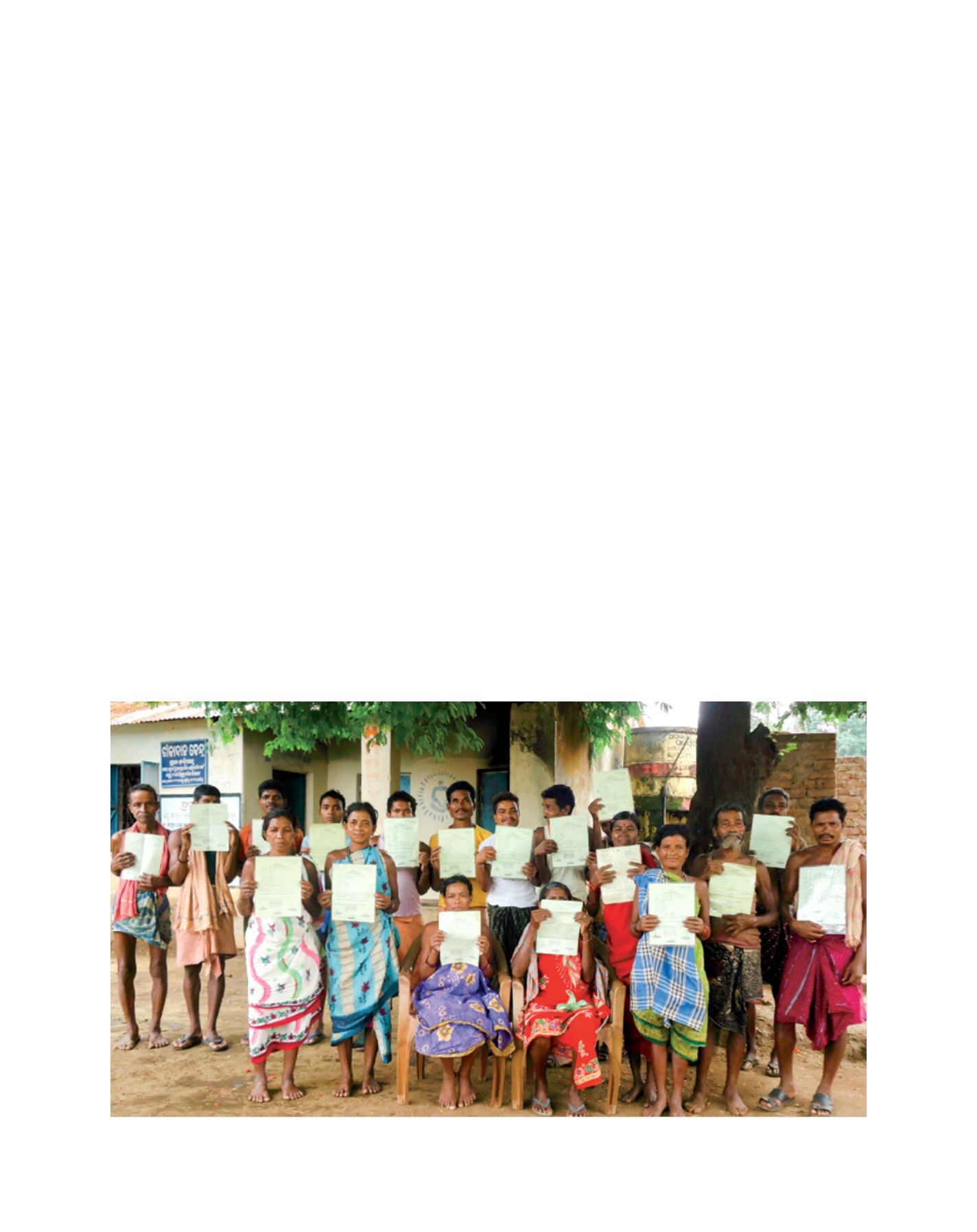

[
] 178
Policy reform through popular participation
In order to secure land and natural resource rights for family
farmers, ILC and its members work at many different levels.
The greatest focus, however, is at the national level, where
members try to influence or collaborate with governments
to formulate and implement land laws and policies that
are created with and for the people that work the land. An
example is the National Land Policy of Uganda, approved in
2013 after more than 10 years of engagement between the
Government and civil society.
Two-thirds of the Ugandan population depends on agri-
culture as their livelihood, and most of them are small family
farmers whose use of the land is customary. Around 80% of
land in Uganda is under customary tenure. While the 1995
Constitution of the Republic of Uganda and the 1998 Land Act
recognized four types of land tenure, including customary,
very few Certificates of Customary Ownership were issued.
Around the turn of the millennium, the Government of
Uganda began formulating a National Land Policy. It received
strong criticism from civil society that there was insufficient
consultation with land users themselves, and it did not support
the needs of the majority of citizens. With support from ILC, its
member Uganda Land Alliance was successful in turning around
a situation of mutual distrust and supporting the Government
to widen its consultations and address unresolved land issues.
The collaborative formulation of a new version of the
National Land Policy was launched, and was eventually
approved by Cabinet in 2013. The policy incorporates to
a large extent the views of the civil society organizations
involved in the formulation process and, as a result, strongly
supports the land rights of women, pastoralists, family
farmers and minorities on customary land.
Holding governments accountable
Given that ILC members operate in an increasingly intercon-
nected world, country-level efforts to promote people-centred
land laws and policies are most effective when comple-
mented by global work. Hence, the coalition is also very
present internationally, where it provides a platform for the
voices of local land users in multilateral forums. One area in
which ILC has been very active is in the area of women’s land
rights. For instance, ILC supported Cambodian civil society
to present a shadow report to the Convention to Eliminate
All Forms of Discrimination Against Women (CEDAW) that
shed a different light on their government’s official report to
the convention.
Women play a crucial role within the family farming system
and are commonly responsible for the production of food
crops, especially where the farm produces both food and cash
crops. Nonetheless, women are often denied land ownership,
and where they have access to land their holdings are usually
several times smaller than those of men.
An overwhelming majority of countries have signed up
to and ratified CEDAW. However, formal commitments to
women’s land rights often fail to change practices locally.
How can governments be persuaded to comply with the
obligations that their states have entered into? ILC supports
member organizations to develop shadow reports on their
government’s record of compliance with international
human rights treaties.
In Cambodia, ILC facilitated its member STAR Kampuchea
to consult communities and produce a report on the extent
to which the CEDAW articles on rural women’s rights were
being respected. According to STAR Kampuchea, this had a
positive impact on building collaboration on women’s land
Now they have received titles for their land, the people of Doliambo Village, Odisha can rely on a steady source of food and income for their families
Image: Trócaire
D
eep
R
oots
















